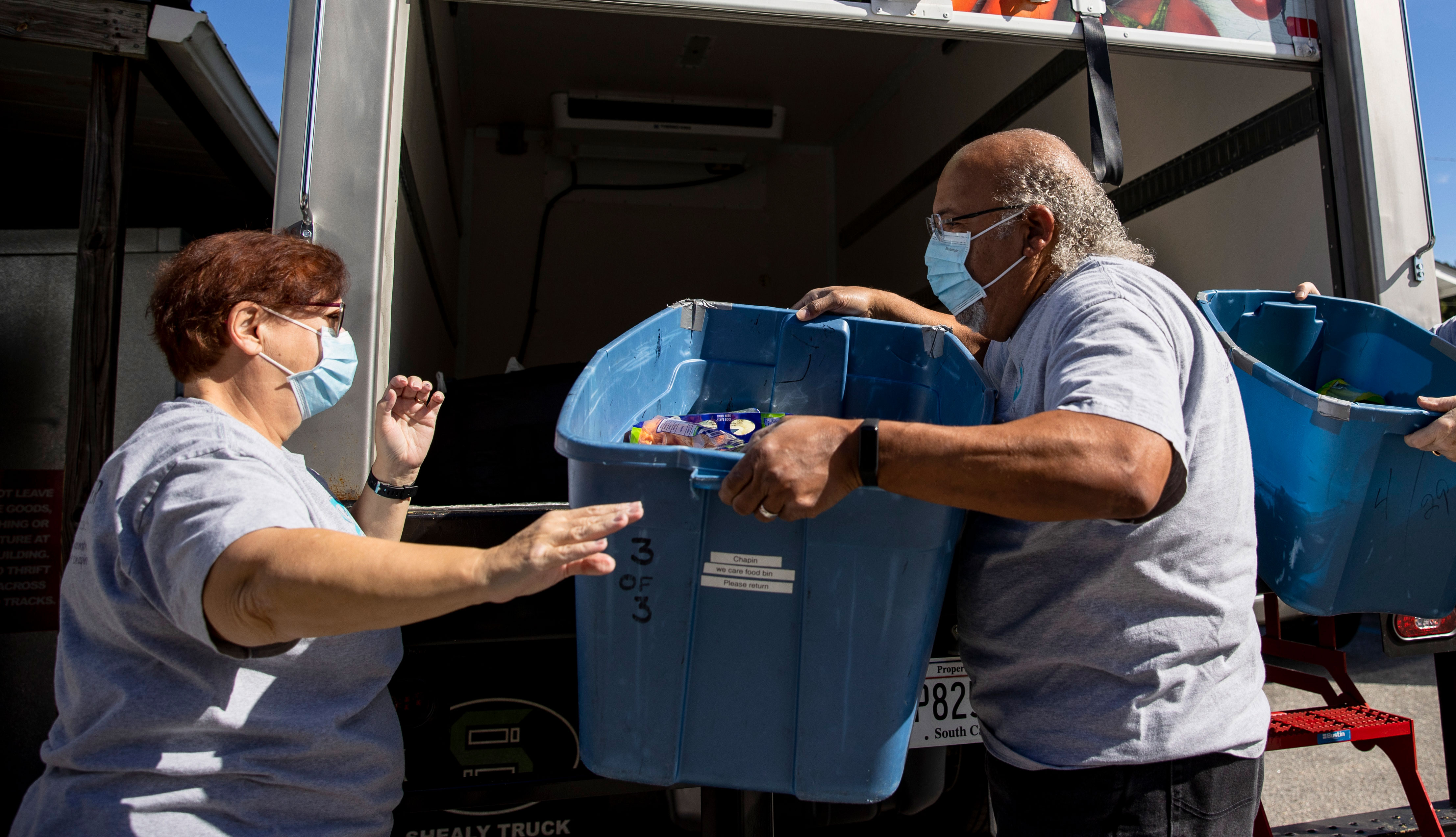AARP Hearing Center

Coretta Bedsole and her husband, George Johnson, both retired, spend their Wednesday mornings volunteering at the We Care Center food pantry in their hometown of Chapin because they want to help others.
“If you have proper nutrition and access to healthy food, you are more likely to age well and have better health if you are older,” says Bedsole, 61, who is a former lobbyist.
She and Johnson, 68, a former mechanical engineer, are members of AARP South Carolina. Bedsole says they get a lot out of their volunteering experience.
“When we leave our local food pantry, we feel happy because we are trying to be a very small part of addressing a systemic problem,” she says.
According to an AARP Public Policy Institute analysis, 8.2 percent of South Carolinians 50-plus were food insecure in 2019. The problem was nearly four times more prevalent among older Black residents than among older white adults.
“People living healthier as they get older is one of our primary purposes,” says Teresa Arnold, AARP South Carolina’s state director. “We know how important food is for that—not just processed food but nutritious food, fresh fruits and vegetables.”
AARP is recruiting members in the new year to help at food banks and pantries, which have struggled to find volunteers during the coronavirus pandemic.
Food Banks Swamped
Food providers have had no trouble during the pandemic attracting people needing food. Feeding the Carolinas—a network that provides help through pantries, soup kitchens, shelters and other community-based organizations—has seen a more than 40 percent increase in the number of people searching for food.
“The majority have never been to a food bank before,” says Mike Darrow, who is head of Feeding the Carolinas. “South Carolina, unfortunately, already was one of the top states for food insecurity. Now we have people trying to decide, ‘Do I get my medicine or pay my rent or buy food?’ ”
Feeding the Carolinas is hoping to secure federal pandemic relief money through the state to expand its Farm to Food Bank Initiative, which pairs food banks with growers across South Carolina to deliver fresh produce to hungry families.
AARP South Carolina is continuing to advocate with state officials for the initiative, which was created before the pandemic.
“The South Carolina Department of Agriculture is a longtime partner of the Feeding the Carolinas food banks,” says state Commissioner of Agriculture Hugh Weathers.
“We’re grateful for AARP South Carolina’s work with food banks to help provide more seniors with healthy food options,” Weathers says.
Darrow sees hope. “The benefit of the pandemic, if there is one, is food insecurity is very top of mind. There is an opportunity here to focus on the root causes. Through people’s support, we can address not only the short-term need but what can be done to prevent food insecurity in the first place.”
AARP has pushed to increase funding for anti-hunger programs as well as encouraged voluntarism to help feed the needy. To volunteer at a food bank, call 866-389-5655 or go to aarp.org/volunteer or the Volunteering section at aarp.org/sc.
Ann Hardie is a writer living in Atlanta.
More on Volunteering































































